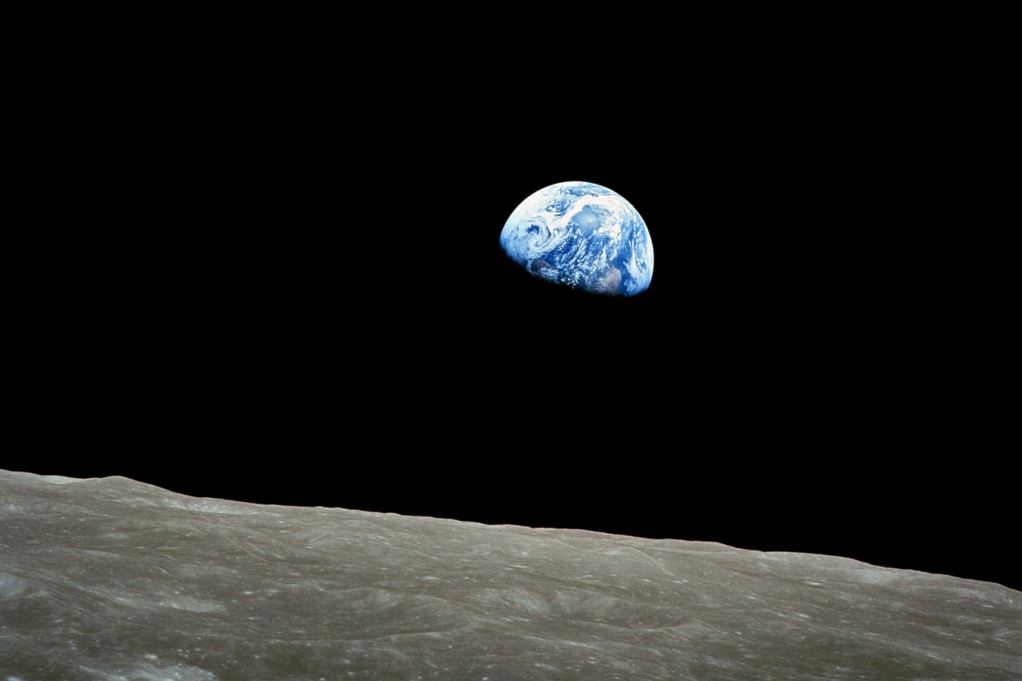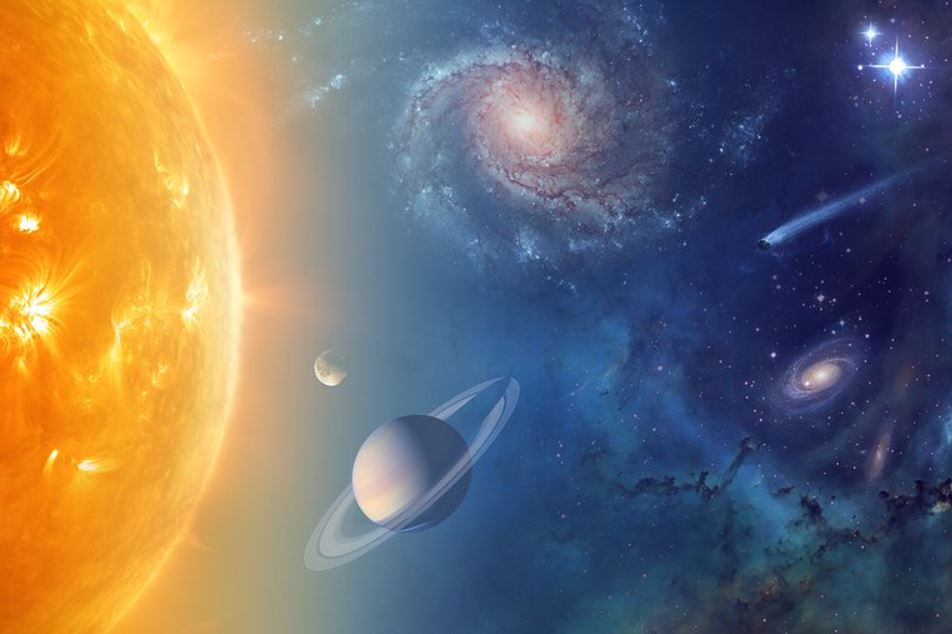Curious about alien life? From qualifications to tuition cost to salary & scope, Astrobiologist and Research Scientist Tony Z Jia talks about how to become an astrobiologist.
Are you considering a career studying outer space and wondering how to become an astrobiologist? Let’s find out all about it.
1. Role of Astrobiologist
I look for life in space. For real. I study astrobiology and extraterrestrial life detection in order to assist in space missions seeking to find signs of life in outer space. Thus, I work at a research institute at a major University in Tokyo, Japan.
Contents: Jump to Section
1.1 Difference between Astrobiologist & Planetary Scientist
1.2 Is Astrobiology a Good Career?
2.2 Entrance Exams
2.3 Academic Qualifications/ Options
2.4 License Required
2.5 Internship/ Work Experience Required
2.6 Cost of Tuition and Training
2.7 Competition
2.8 General Age to Start Professional Career for Astrobiologist
2.9 Governing Bodies
3.2 Companies & Institutions That Employ Astrobiologist
3.3 Growth Prospects
3.4 Entrepreneurship Opportunities
3.5 Salary Range
4.2 Top Universities in World
4.3 Famous Personalities
4.4 Useful Links
1.1 Difference between an Astrobiologist and Planetary Scientist
Before we talk about how to become an astrobiologist, let’s compare two very similar fields, astrobiology and planetary sciences.
Astrobiologists’s work concentrates on finding life in space. They study the origins of life, and also prebiotic chemistry to search for habitable environments in outer space. This means finding what were the conditions that helped create life in the universe, and the right conditions that could suggest life on other planets or celestial bodies.
While astrobiologists work on finding life in extra-terrestrial planets, whereas planetary scientists study all aspects of planets, including geology, oceanology, and much more. Even astrobiology is one of the things planetary scientists research on. Read more here in our article on Planetary Scientist.
1.2 Is Astrobiology a Good Career?
Space research is often very interesting to some people, while it is completely boring to other people since it has no direct bearing on most people’s lives. This career path can be very exciting for the students who want to spend their life studying space and would like to contribute to the search for life on other planets or celestial bodies.
2. How to Become an Astrobiologist
Let’s see what are the steps you need to follow in order to become an astrobiologist.
1. Graduate high school: The first step is to complete 12th or senior secondary school. You must go for science stream with biology and maths both, and also develop good computer and communication skills.
2. Apply for (and crack) college entrance exam: To take admission in science institutes, there is no one specific entrance exam. If you go for national institutes like IISC, then you should crack JEE. Similarly, every college has its own entrance tests, that you need to clear. Depending on the college you’re going for, you’ll need to apply for (and clear) the college entrance exams (more info on that below).
3. Bachelors’ in Science: There are so many science-related courses that you can choose from take to begin your career depending on your niche. You can go for bachelor’s in science (B.Sc.) or join the BS-MS program.
4. Do an Internship: To get admission in master’s or Ph.D. program, you will need to work in the laboratory during your course. Plus, you will need to write a research thesis in your specialty.
5. Complete master’s degree and Ph.D: Opting for master’s degree is essential to becoming an astrobiologist. You can also go for a joint master’s Ph.D degree in a science-related field.
6. Get a job after your post-doc: There are limited job opportunities. It’s likely that your first job may not even be in astrobiology, however you’ll need to eventually find opportunities in the field by working in other related fields, networking and patience.
If you’re planning to become a successful astrobiologist, read on to know more about these steps and courses below.
2.1.1 Courses Taken at School
Science stream is essential. Fluency in English is a must. You’ll need to study physics, chemistry, maths, biology, computer & English in high-school.
2.1.2 Courses Taken at College
All science-related courses, as well as science-writing and science-presentation. Here are some of the courses you can take for pursuing a career in astrobiology:
- Chemistry
- Biology
- Micro-biology
- Mathematics
- Aeronautics
- Astronomy
- Earth and environmental sciences
- Biochemistry
- Genome sciences
- Geology
- Atmospheric science
- Oceanography
2.2 Entrance Exams
Here are some of the entrance exams that colleges with science degrees require in India:
College entrance exams will depend on your country.
NEET & Joint Entrance Examination (JEE) is for undergraduate in IISc (see in universities below), etc.
Graduate Aptitude Test in Engineering (GATE) for ME, M.Tech, PhD.
Joint Admission Test (IIT JAM) for M.Sc.
IISER Aptitude Test (IAT) for IISER.
2.3.1 Academic Qualifications/ Degree Required
Any science degree.
If you want to know how to become an astrobiologist, you have to start with a basic college degree in science, like B.Sc. Most colleges have science degrees; and you can be an astrobiologist with any science degree. You can do Bachelor in Science (BS) 4 year degree or joint BS-MS program (5 year degree).
2.3.2 Post-Graduate Degree Requirements/ Options
PhD.
Masters in Science and PhD in a science-related field.
2.4 License Required
You don’t require a license, but you will need academic qualifications: a PhD in a science-related field.
2.5 Internship/ Work Experience Required
Yes.
You must enter and finish a PhD graduate program in a major university, and to enter a PhD program, you must work in a laboratory during college/university, including summers, as well as write a senior research thesis.
2.6 Cost of Tuition and Training
The fee for BS-MS programs in India is INR 40-50,000 for government colleges per semester including hostel (for 5 year degree program).
For a university in the United States, the total for 4 years of study for university would be about 200,000 USD. PhD Courses in the United States are usually free.
2.7 Competition
Very high.
Entrance for good universities is extremely competitive, and a bachelors or doctorate from a good university will help you get a good job offers. To enter Harvard University for a bachelor’s program, for example, only 5% of applicants will get in. Then, you must enter a PhD course, which is also difficult to enter. Finally, to become a researcher or a professor, you must compete with the best of the best from around the world. It’s not unheard of to apply for 100 jobs and receive only 1 offer in the end.
2.8 General Age to Start Professional Career for Astrobiologist
28-30 years.
If you’re thinking how to become an astrobiologist, here’s the amount of time you’ll need to spend in academics before you find your first “formal” job. You’ll need to complete 4 years of University, 5-6 years of PhD, and up to 2 years of postdoctoral training in a laboratory.
2.9 Governing Bodies
Each country has their own governing body.
Indian Planetary Society in India
NASA (National Aeronautics and Space Administration) in the US.
3. Professional Opportunities/ Career Growth for Astrobiologist
3.1 Specializations/ Sub-Professions
Would you like to know how to become an astrobiologist with a super-specialization? You can specialize in Chemistry, Biology, Physics, Engineering, Geology, Planetary Science, Astronomy, or some other related fields.
From mathematicians creating models for the formation of self-replicating systems to chemistry major researching about the chemical origin of life, there are many possibilities for specializations in this field.
3.2 Companies & Institutions that Employ Astrobiologist
In India, there are few opportunities. There is a new Astrobiology Center at Amity University in Mumbai (Centre of Excellence in Astrobiology), led by my colleague Sidd Pandey!
Research institutes employ astrobiologists, such as Indian Astrobiology Research Centre, Mumbai.
Universities like Harvard, Caltech, or Tokyo Institute of Technology, or Research Institutes like the Earth-Life Science Institute (ELSI), or JAXA.
3.3 Growth Prospects
With enough experience and good results, you will move up from researcher to assistant professor, to associate professor, to tenured professor. Or, you will move up from researcher up to senior researcher, some cases becoming the head of a major space project like Hayabusa2 or MMX at JAXA.
3.4 Entrepreneurship Opportunities
All inventions used in Space-related research may be useful for other related fields like medicine or engineering. It’s a case-by-case base.
3.5 Salary Range
Salary range is highly variable for each country and institute.
4. Further Resources
4.1 Top Universities in India
Although there are no degrees on Astrobiology in India specifically, here are some of the best institutes that offer science, astrophysics or related degrees:
- Indian Institute of Astrophysics (IIA)
- Tata Institute of Fundamental Research (TIFR)
- Indian Institute of Science (IISc)
- Indian Institute of Science Education & Research (IISER), Pune.
4.2 Top Universities in World
- Harvard University
- Massachusetts Institute of Technology (MIT)
- California Institute of Technology (CalTech)
- Princeton University
- Berkeley
- Arizona State University.
4.3 Famous Personalities
Mary Voytek
4.4 Useful Links
My research institute, ELSI, is planning to release some Youtube videos detailing what a scientist’s daily life is like, and what research we are doing. Keep your eye out for these.
You can also check out:
- Career path suggestions by NASA
- Centre of Excellence in Astrobiology Amity University Mumbai
- Astrobiology Research at NASA
- Indian Astrobiology Research Foundation (IARF) website.
Read next:
Astrobiology Career Path: All You Need to Know
Wondering if you should take up astrobiology? From pros and cons to understanding life as an astrobiologist, here is everything you need to know about this profession before you take it up.

Tony Z Jia is an astrobiologist working as a Research Scientist at Earth-Life Science Institute (ELSI), Tokyo Institute of Technology, Meguro-ku, Tokyo, Japan. Tony has a B.S. in Chemistry and Business, Economics, and Management (2010) from California Institute of Technology. He also has an A.M. in Chemistry Economics (2012), and Ph.D. in Chemistry (2016), both from Harvard University.
Originally from Naperville, Illinois, USA, Tony now live and work in Tokyo, Japan since 2017. He has worked in astrobiology, prebiotic systems, chemistry, self-assembly, and chemical evolution. You can find his publications at his google scholar profile.
In his free time, Tony volunteers as an English Teacher and a Worship Band Singer at his church. He also enjoys winning, long walks on the beach, cooking (and eating), and traveling.







It is totally useful to me!
Valuable information.